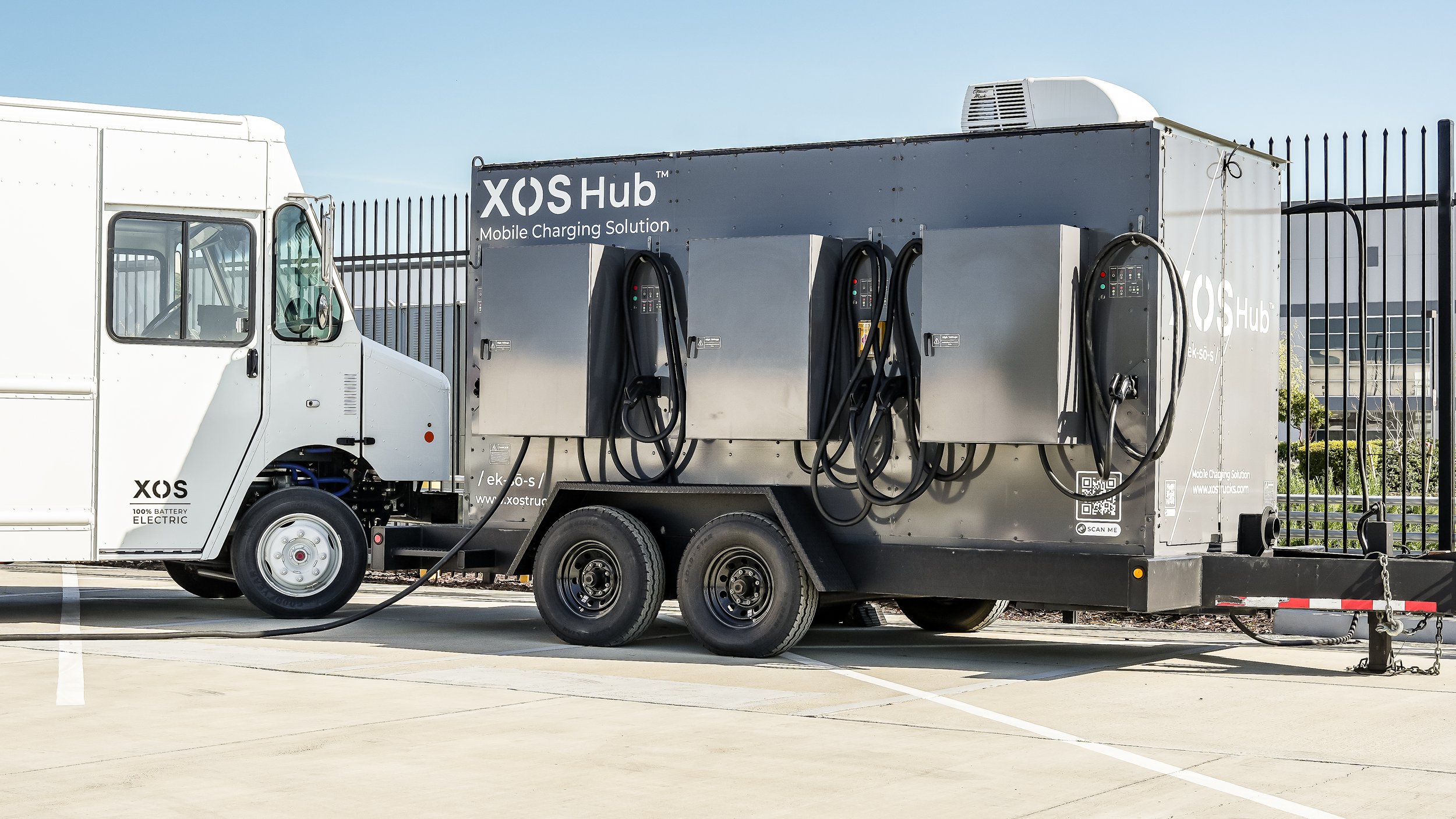Your Guide to the Advanced Clean Fleets Rule
2023 Xos Stepvan
The state of California and the California Air Resources Board (CARB) are leading the way in the transition to a cleaner, more sustainable transportation sector. CARB has implemented a wide range of policies and regulations aimed at reducing greenhouse gas emissions and accelerating the transition to clean energy, including incentives programs and the Advanced Clean Trucks (ACT) regulation.
The Advanced Clean Fleets (ACF) rule is the latest world-leading regulation approved by CARB. The ACF rule puts the state on a path to phase out the sales of medium- and heavy-duty internal combustion engine (ICE) trucks in California by 2036, which supports California’s goal of fully transitioning to zero-emissions technology by 2045.
Beginning as early as 2024, the following types of fleets will need to start transitioning towards zero-emission vehicles to comply with ACF requirements:
Class 7-8 drayage trucks operating at California's seaports and intermodal railyards
State, local, and federal government fleets
High-priority fleets, defined as “entities that own, operate, or direct at least one vehicle in California, and that have either $50 million or more in gross annual revenues, or that own, operate, or have common ownership or control of a total of 50 or more vehicles (excluding light-duty package delivery vehicles)”
So what about ACT?
You may be wondering, how are the ACT and the ACF related?
Simply put, they work in tandem like two sides of the same coin to drive both the demand and supply of zero-emission trucks. The ACT regulation has a manufacturer sales mandate component, which charts out a progressive path for the manufacturers to sell more zero-emission vehicles over the next decade. On the flip side, the ACF regulation aims to boost demand from the fleet side, by requiring certain fleets to buy zero-emission vehicles and retire ICE vehicles, to gradually reach the goal of a 100% zero-emission fleet.
As ACT has been adopted by many states other than California, ACF may be on the horizon. It is pivotal to take notes now to stay ahead of the regulations.
Source: Gladstein Neandross & Associates
How will your fleet be impacted?
Depending on the fleet type, you may have different options to move toward a zero-emission fleet in compliance with ACF. The Xos Stepvan (“Stepvan”) is in the Milestone Group 1 category of vehicles, which means it is subject to a faster adoption schedule. The 2023 Xos Stepvan is a Class 6 commercial electric truck that can operate up to 200 miles on a single charge. Xos has been in operation for 5 years with customers in last-mile delivery, parcel delivery, cash-in-transit, and textile services fleets across North America.
To understand the specific rules that may apply to your fleet, see the graphic below:
Planning for Infrastructure
While electric vehicles are becoming more readily available, it can take a lengthy amount of time depending on local utilities to install permanent charging infrastructure.
To remove roadblocks to EV adoption for fleets, Xos Energy Solutions offers products and services that accelerate the deployment of fast, mobile, and reliable charging. We recently unveiled the second generation of our mobile charging solution, the Xos Hub (“the Hub”). A rapidly deployable, mobile charging solution that enables flexible and scalable access to DC fast charging, the Hub can enable your fleet to start transitioning now by cutting down the lead time associated with installing permanent infrastructure.
Reach out to our team at sales@xostrucks.com if you need assistance or fill out this form - https://www.xostrucks.com/xes/#bookademo.
The Takeaways
While the ACF is not yet in effect, the initial deadlines are approaching quickly. It is important that fleets start now to account for the lead time for infrastructure deployment. By starting today, you can plan for the nuances in applicable regulations, incentives, and exemptions available to achieve a smooth transition.
Disclaimer: Xos does not administer the ACF or ACT. This content is provided for informational purposes only. Important terms, conditions, and limitations apply and may change from time to time.





